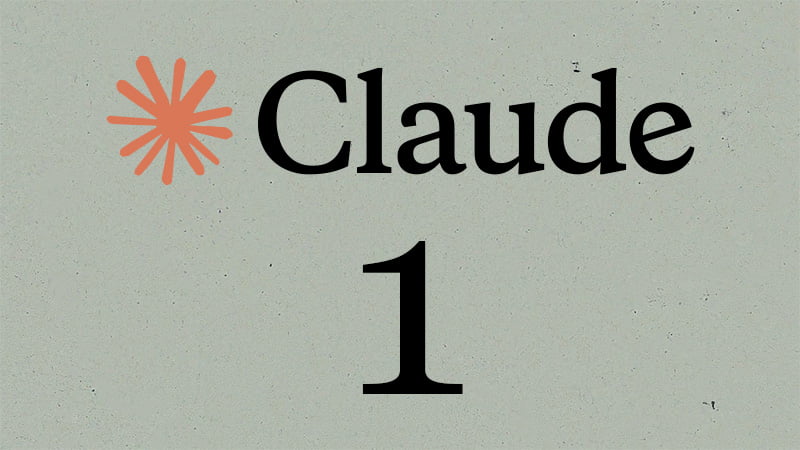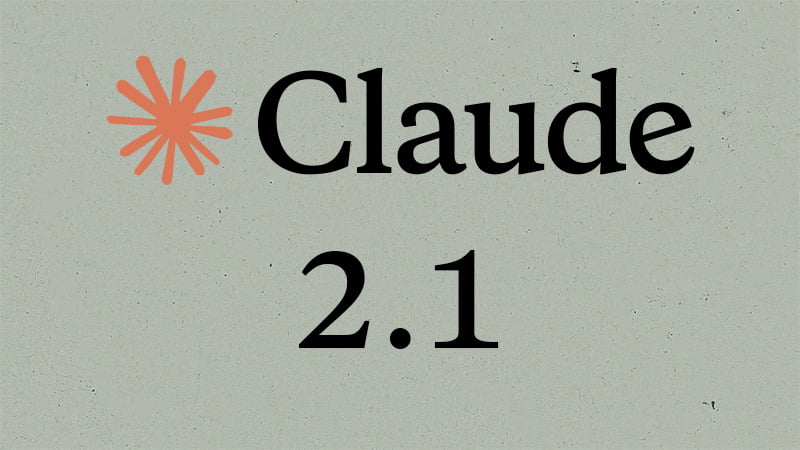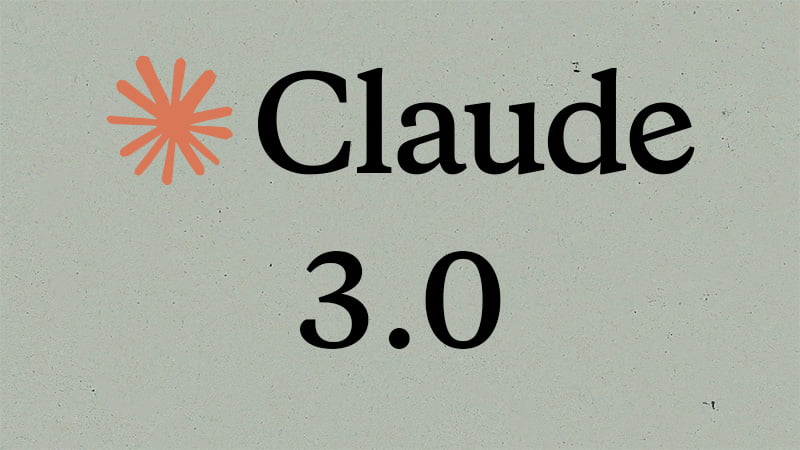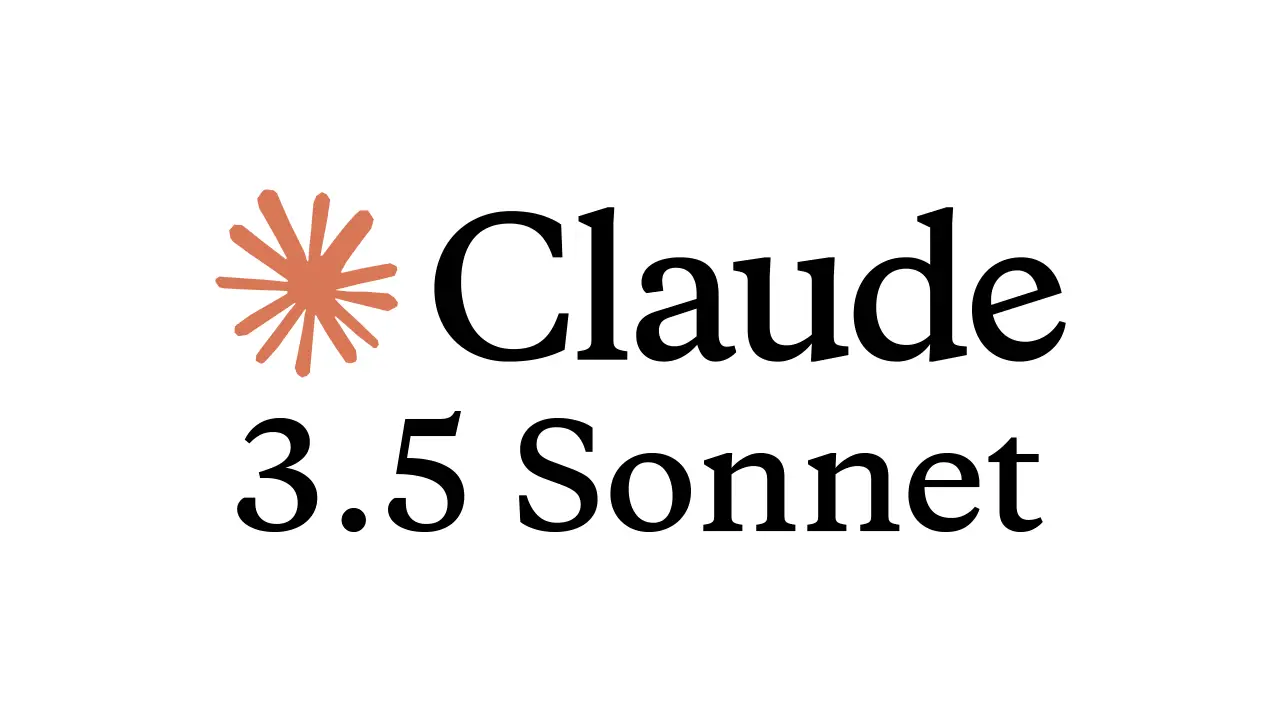Claude or Claude 1
Claude, or Claude 1, was the initial version of Anthropic’s language model released in March 2023. This groundbreaking AI assistant demonstrated proficiency in various tasks such as summarization, search, creative and collaborative writing, Q&A, and coding. Early users reported that Claude was less likely to produce harmful outputs, easier to converse with, and more steerable compared to other AI models available at the time.

However, Claude 1 had certain limitations in coding, math, and reasoning capabilities. For example, on the multiple choice section of the Bar exam, Claude 1.3 scored 73.0%. Despite these limitations, Claude 1 was praised for its ability to understand user intentions and requests better than many of its contemporaries.
Claude Instant
Claude Instant is a faster, less expensive, and more lightweight version of Claude. It was released in two versions: Claude and Claude Instant, with the latter being optimized for speed. Claude Instant has an input context length of 100,000 tokens, which corresponds to around 75,000 words. This allows businesses to submit large amounts of documentation for Claude Instant to analyze.

Claude Instant 1.2, released in August 2023, outperformed its predecessor Claude Instant 1.1 on math and coding tasks. It achieved a score of 58.7% on the Codex evaluation compared to 52.8% by Claude Instant 1.1. Claude Instant is ideal for use cases that require near-instant responses, such as answering simple queries and requests.
Claude 2.0
Claude 2.0, released on July 11, 2023, brought significant improvements over its predecessor. This new model offered better performance, longer responses, and could be accessed via API as well as a new public-facing beta website, claude.ai. Claude 2.0 expanded its context window from 9,000 tokens to 100,000 tokens, enabling users to upload PDFs and other documents for summarization and analysis.

On various benchmarks, Claude 2.0 demonstrated enhanced capabilities. It scored 76.5% on the multiple choice section of the Bar exam, up from 73.0% by Claude 1.3. On the GRE reading and writing exams, Claude 2.0 performed above the 90th percentile compared to college students applying to graduate school. Additionally, Claude 2.0 exhibited a 71.2% score on the Codex HumanEval Python coding test, a significant improvement from Claude 1.3’s 56.0%.
Claude 2.1
Claude 2.1, made available in November 2023, delivered advancements in key capabilities for enterprises. This update doubled the context window to an industry-leading 200,000 tokens, equivalent to roughly 150,000 words or over 500 pages of material. This allows users to upload and process extensive technical documentation, financial statements, and even long literary works.

One of the most notable improvements in Claude 2.1 is the 2x decrease in false statements compared to Claude 2.0, enhancing its honesty and reliability. In evaluations, Claude 2.1 demonstrated a 30% reduction in incorrect answers and a 3-4x lower rate of mistakenly concluding that a document supports a particular claim. These accuracy improvements make Claude 2.1 more suitable for enterprise applications that require a high degree of precision.
Claude 3 Models (Claude 3 Haiku, Claude 3 Sonnet, Claude 3 Opus)
In March 2024, Anthropic announced the Claude 3 model family, setting new industry benchmarks across a wide range of cognitive tasks. The family includes three state-of-the-art models in ascending order of capability: Claude 3 Haiku, Claude 3 Sonnet, and Claude 3 Opus.

Claude 3 Opus, the most powerful model, outperforms its peers on most common evaluation benchmarks for AI systems, including undergraduate level expert knowledge (MMLU), graduate level expert reasoning (GPQA), basic mathematics (GSM8K), and more. It exhibits near-human levels of comprehension and fluency on complex tasks.
Claude 3 Sonnet offers an ideal balance of intelligence and speed for enterprise workloads. It is 2x faster than Claude 2 and Claude 2.1 for the vast majority of workloads while providing higher levels of intelligence. Claude 3 Sonnet powers the free experience on claude.ai, with Opus available for Claude Pro subscribers.
Claude 3 Haiku, the fastest and most compact model in the family, is designed for near-instant responsiveness. Although not yet released, Haiku is expected to answer simple queries and requests with unmatched speed, enabling users to build seamless AI experiences that mimic human interactions.
All Claude 3 models demonstrate increased capabilities in analysis, forecasting, nuanced content creation, code generation, and conversing in non-English languages like Spanish, Japanese, and French. They also possess sophisticated vision capabilities, allowing them to process and analyze visual formats such as photos, charts, graphs, and technical diagrams.
Claude 3.5 Sonnet

Claude 3.5 Sonnet is available for free on Claude.ai and the Claude iOS app, with higher rate limits for Claude Pro and Team plan subscribers. It’s also accessible via the Anthropic API, Amazon Bedrock, and Google Cloud’s Vertex AI. The model costs $3 per million input tokens and $15 per million output tokens, with a 200K token context window.
Anthropic has maintained its commitment to safety and privacy with Claude 3.5 Sonnet, subjecting it to rigorous testing and engaging with external experts, including the UK’s Artificial Intelligence Safety Institute (UK AISI) and the US AI Safety Institute (US AISI), for pre-deployment safety evaluation.
Will we see Claude 4 Soon?
As of April 2024, there is no official announcement or indication from Anthropic regarding the development or release of a Claude 4 model. However, given the rapid advancements in AI technology and Anthropic’s commitment to pushing the boundaries of AI capabilities, it is likely that the company will continue to work on improving and expanding the Claude model family in the future.
What Training Methods Did Anthropic Use to Train Claude?
Anthropic employs a unique approach called Constitutional AI to train its AI systems, particularly language models like Claude, to be helpful, honest, and harmless without relying extensively on human feedback. The method involves two phases: supervised learning and reinforcement learning.
In the supervised learning phase, the model generates responses to prompts, self-critiques these responses based on a set of guiding principles (a “constitution”), and revises the responses. The model is then fine-tuned on these revised responses.
During the reinforcement learning from AI feedback (RLAIF) phase, responses are generated and compared according to their compliance with the constitution. This dataset of AI feedback is used to train a preference model that evaluates responses based on how well they satisfy the constitution. Claude is then fine-tuned to align with this preference model.
API Availabilities of All Claude Models
Anthropic offers API access to several Claude models, allowing developers to integrate the AI’s capabilities into their applications and services. The availability of each model through the API varies, with some models accessible to all users and others limited to specific tiers or not yet released.
The table below provides an overview of the API availability for each Claude model as of April 2024.
| Model | API Availability |
|---|---|
| Claude 1 | Not available |
| Claude Instant | Available through Anthropic API |
| Claude 2.0 | Available through Anthropic API and claude.ai |
| Claude 2.1 | Available through Anthropic API and claude.ai |
| Claude 3 Opus | Available through Anthropic API and Claude Pro on claude.ai |
| Claude 3 Sonnet | Available through Anthropic API and powers free tier on claude.ai |
| Claude 3 Haiku | Available through Anthropic API and powers free tier on claude.ai |
Which of the Claude models are no longer available?
As of April 2024, Claude 1 and Claude 2 are no longer available for use. Anthropic has focused on developing and releasing newer, more advanced models such as Claude 2.1 and the Claude 3 family (Opus, Sonnet, and Haiku).
Users looking to leverage Anthropic’s AI technology should consider the currently available models, including Claude 2.1, Claude 3 Opus, Claude 3 Sonnet, and the upcoming Claude 3 Haiku, each designed to cater to specific use cases and performance requirements.
What models does Claude Pro offer?
Claude Pro, the paid subscription tier on claude.ai, offers access to the most advanced model in the Claude 3 family, Claude 3 Opus. This premium model delivers top-level performance, intelligence, fluency, and understanding for highly complex tasks, making it ideal for businesses and individuals seeking the highest quality outputs from an AI assistant.
Claude Pro subscribers are not limited to using only Claude 3 Opus. They have the flexibility to switch between all three Claude 3 models (Opus, Sonnet, and Haiku) based on their specific needs and use cases.